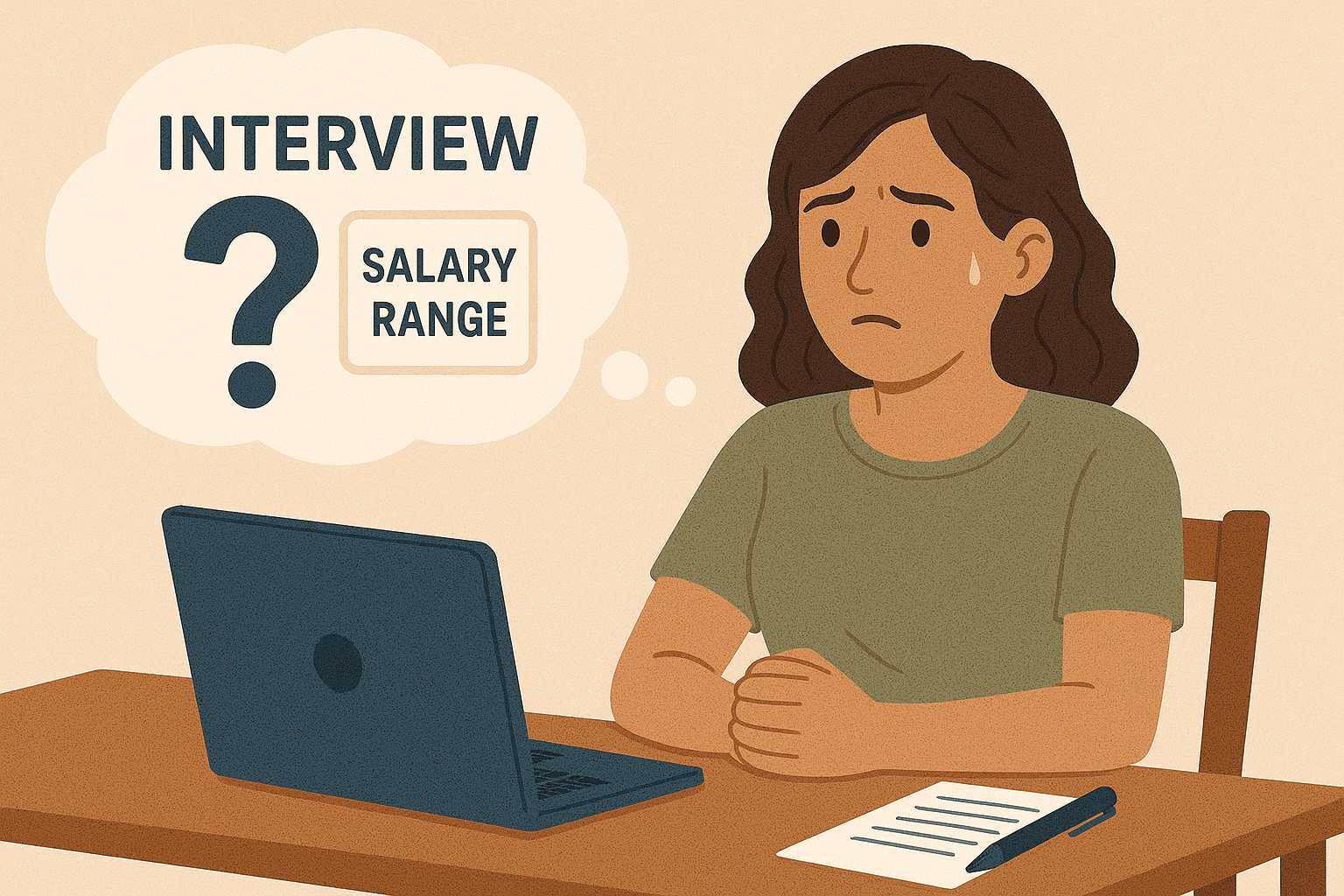Why Salary Conversations Matter in Tech Interviews
One of the most nerve-wracking moments in any job interview is when you’re asked, “What’s your salary range?” It’s a question that can make or break your offer. In tech roles—where salary bands vary based on experience, location, and skill set—preparation is key. In this article, we’ll walk through how to research, prepare, and respond with confidence so you can secure the compensation you deserve.

Why You Should Prepare for Salary Range Questions
Your response to the salary range question sets the tone for the entire negotiation. Employers are gauging not just your expectations, but your confidence and market awareness. Being prepared ensures you:
- Don’t get caught off guard.
- Avoid underselling your worth.
- Enter negotiations from a position of knowledge and strength.
Step 1: Research the Market Value for Your Role
Before walking into any interview, you should know the typical compensation for your role and level.
- Use tools like Glassdoor, Levels.fyi, and Paysa to research salaries.
- Look at compensation ranges for your title in your city or region.
- Adjust for your level—entry-level, mid-level, or senior—and specialization (e.g., data science, software engineering, DevOps).
Grab our free salary negotiation cheat sheet to help structure your prep and talking points.
1–2 Hours: Tailored Job Applications
Apply to 5–8 high-quality roles each day.
- Customize your resume and cover letter for each job.
- Use Boolean search techniques on platforms like LinkedIn and Dice to find niche tech opportunities.
- Focus on roles that align with your skills and long-term career goals.
Get a free ATS-optimized CV template to improve your application success rate.
Step 2: Prepare a Realistic, Experience-Based Range
Based on your research and experience, choose a range that you can justify. Example:
“For a mid-level data scientist with my skill set and experience, I’d expect something in the $110K–$130K range.”
This positions you as informed and flexible while leaving room for negotiation. Avoid overly wide ranges that show indecision, or overly narrow ones that may limit options.
Step 3: Redirect the Question Confidently When Needed
If asked early in the interview process, it’s okay to flip the script and ask for their range first. This allows you to tailor your expectations to their budget and avoids setting a ceiling on your potential offer. Try:
“I’d love to understand more about your compensation range for this role to ensure we’re aligned.”
This strategy is especially useful when the job description didn’t include salary details.
Step 4: Justify the Top End of Your Salary Range
Don’t just give a number—demonstrate why you’re worth it. Highlight unique skills, projects, or certifications that align with the role. Example:
“Given my experience building scalable cloud solutions and leading data pipeline optimization, I believe $120K is appropriate.”
Tie your value to business outcomes whenever possible.
Pro Tip: Be Confident and Don’t Undersell
Silence after sharing your range is normal. Don’t feel pressured to fill the gap. Be calm, make eye contact, and wait for their response.
Underselling yourself doesn’t lead to faster offers—it leads to regret. Know your worth and let your preparation speak for itself.
Own the Salary Question with Strategy
Answering “What’s your salary range?” is more than a guess—it’s a strategy. By researching, preparing a tailored range, redirecting when necessary, and backing up your ask with value, you shift the power dynamic in your favor.
Salary conversations don’t have to be intimidating. With preparation and confidence, you’ll be ready to secure the bag and land the role you deserve.
If you want expert guidance tailored to your goals, consider a 1:1 personalized career coaching session to help you prepare for interviews and negotiations.
FAQs
When is the best time to discuss salary?
Ideally during final rounds, but be prepared early on.
What if they insist I answer first?
Give a researched range with a justification.
Is it okay to negotiate even if I really want the job?
Absolutely—negotiation is expected in tech.
Should I mention total compensation or just base?
Clarify whether you’re referring to base, total comp, or equity.
What if my range is lower than theirs?
You may still be offered the higher range—don’t lowball yourself.
